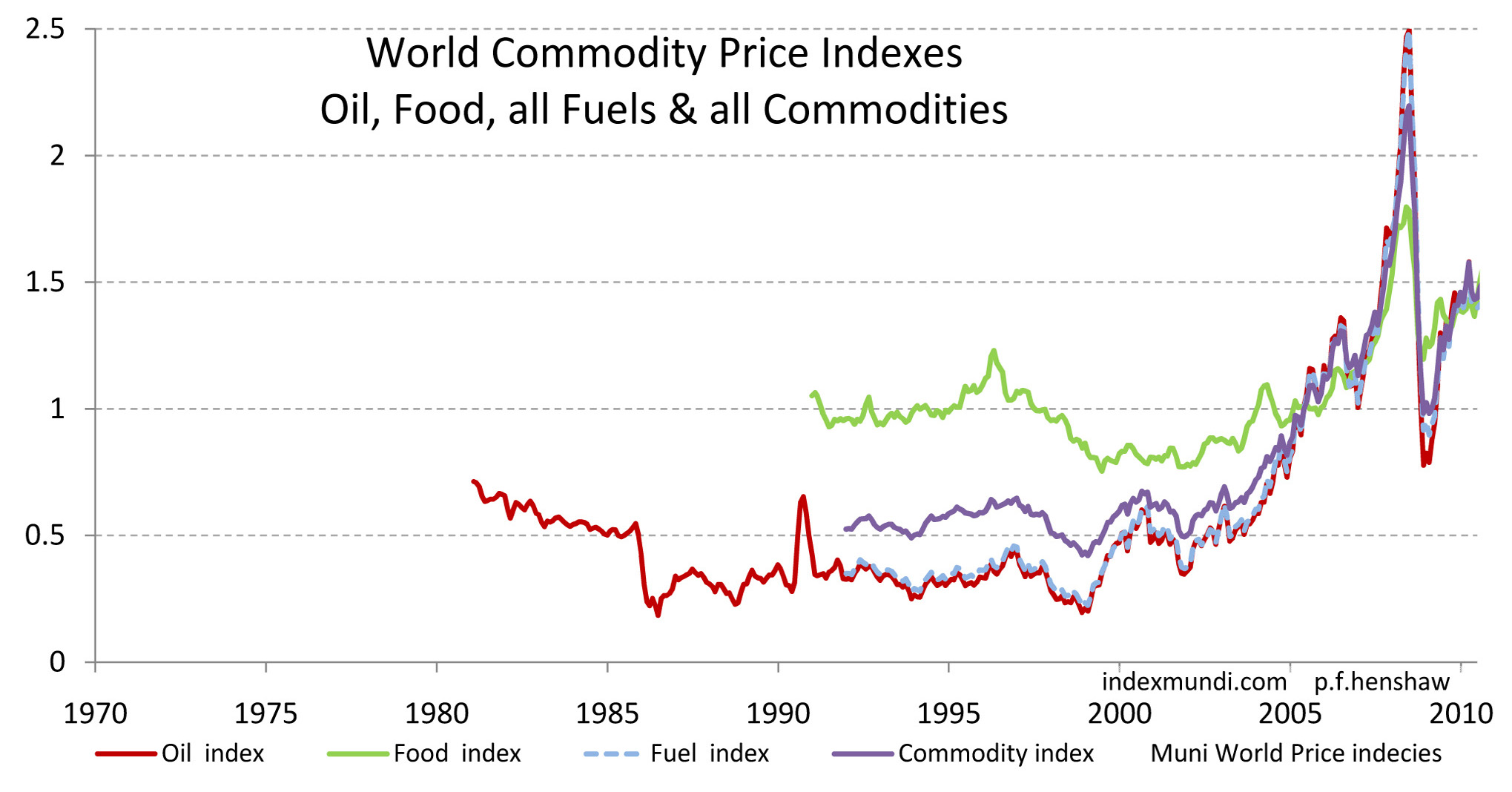Thomas Fischbacher, in an interview by John Baez, discussed the resource problems of agriculture, and the deep conflicts caused by our endless soil depletion, as well as increasing depletion of fuel an water resources, saying
“So, we pretty much know that something will happen there.”
Giampiero Campa asked, So what will it look like when “something will happen” ? Suggesting that it might not seem like trouble for the rich world, only for the poor… Fishbacher’s answer is good too, but misses the powerful evidence that resource depletion has already caused a quite dramatic shift in how the earth responds to us, that has largely gone unnoticed. The real question, then, is why we’re not getting nature’s signals, and not even the environmentalists are seeing what changed, — we’d have to “break some eggs” in terms of our own thinking and are hesitating, unsure what to do.
A related ReTweet by Revkin from Shoudaknown “@Revkin Environmentalists also impressively ignore the actual source of demand, that overpowers their own efforts to protect the earth.”
________
We can be much more precise about what happens I think. Asking what it means that “something happens” is indeed the fascinating question. I say “fascinating” because it exposes our notorious inability to imagine what reactions will be caused in the future to alter present trends we see clearly can’t last. We don’t train our thinking to do that, but mostly just “wait and see”.
Here the question is more easily answered, that what “something happens” means for degrading resource capacities while steadily increasing demand is “demand systemically exceeding supply“. That began to occur for the world as a whole about 10 years ago, in the form of the food and fuel resource markets becoming increasingly slow in recovering from snags in delivering supplies to the economy.

A decisive moment for investing in sustainability
That’s implied by the price movements, that increasingly don’t return to “normal” after supply shocks. Everyone is blaming the weather and politics, crop failures, and speculators, etc. Those create the supply shocks hitting our resource supply system. They are not at all the reason why the supply system never recovers, and prices don’t come back to normal. The reason for that is the comparatively slower ability of the supply system to meet ever growing demand, a.k.a. “peak everything”.
That seems to be the general environmental description of what you see in the world commodities price curve. We have repeatedly higher price spikes as needed to quench unmet demand, and floor prices that have been basically rising at ~20% per year since we “crossed the line”. Increasing supply started becoming ever more costly rather than ever cheaper, due to natural resource constraints.
Understanding how nature makes such very complex systems behave as a whole so simply… starts with admitting that natural systems must in fact behave by themselves, just like organisms, and are NOT controlled from outside but inside essentially like living things. Our own mental blocks to thinking that are the “eggs we need to break” to move forward.
The problem is that the economy works with physical systems, most of which go unrecorded and unobserved and take care of themselves. Our business and finance communities came to rely on converting everything to money, and only measuring change in %’s. So that largely strips the minds of decision makers of the concepts about how these energetic natural systems respond to being squeezed.
So, for now,”what happens” is those systems change their behavior, and that subject doesn’t come up in discussions about what the problem is.
